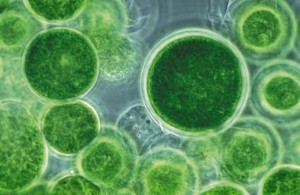
Humanity has been excessively using fossil fuels to meet our energy needs in life. However these sources are limited and will eventually disappear. Therefore scientists have been trying to develop new, innovative methods to create and store energy. Such an example is solar energy. 
The sun exerts nine to ten times more energy than the amount of energy consumed by the world daily. An amount of this much energy is massive, but humans still cannot efficiently accumulate its energy. As a result, the current method is build machines called solar panels. These devices capture the sun’s natural heat. After, they transform solar energy into renewable electricity, which can then be conserved into batteries that will not lose any power. However this still holds nothing close to the sun’s daily energy. It is so frustrating that despite all our efforts, only roughly thirty percent of the sun’s energy can be collected. If only the solar panels could be constructed in such a way that almost a hundred percent efficiency is achieved, then the all the world’s energy problems would be solved in an instant.
 In relation to that, another technique scientists have been attempting to utilize is algae. The energy people acquire from the sun is huge during the daylight, but most of it goes away during the evening and night. This is so because our solar cells cannot store energy for long times, which is why there are batteries. But recently algae have been noticed to be a potential savior in storing energy. Most people know algae as pond scum. However they are one of the fastest growing plants in the world, and algae store captured solar energy as biomass more efficiently than terrestrial crops, and neither fresh water nor arable land is required. The algae still cannot store much energy currently. But at this rate, we are getting closer to our ideal world.
In relation to that, another technique scientists have been attempting to utilize is algae. The energy people acquire from the sun is huge during the daylight, but most of it goes away during the evening and night. This is so because our solar cells cannot store energy for long times, which is why there are batteries. But recently algae have been noticed to be a potential savior in storing energy. Most people know algae as pond scum. However they are one of the fastest growing plants in the world, and algae store captured solar energy as biomass more efficiently than terrestrial crops, and neither fresh water nor arable land is required. The algae still cannot store much energy currently. But at this rate, we are getting closer to our ideal world.
http://en.wikipedia.org/wiki/Photovoltaic_module
http://www.solarpanelinfo.com/
http://www.discoversolarenergy.com/biomass/algae.htm
http://www.cnn.com/2008/TECH/science/04/01/algae.oil/index.html
http://www.greenlime.com.au/Biofuel-From-Algae.php